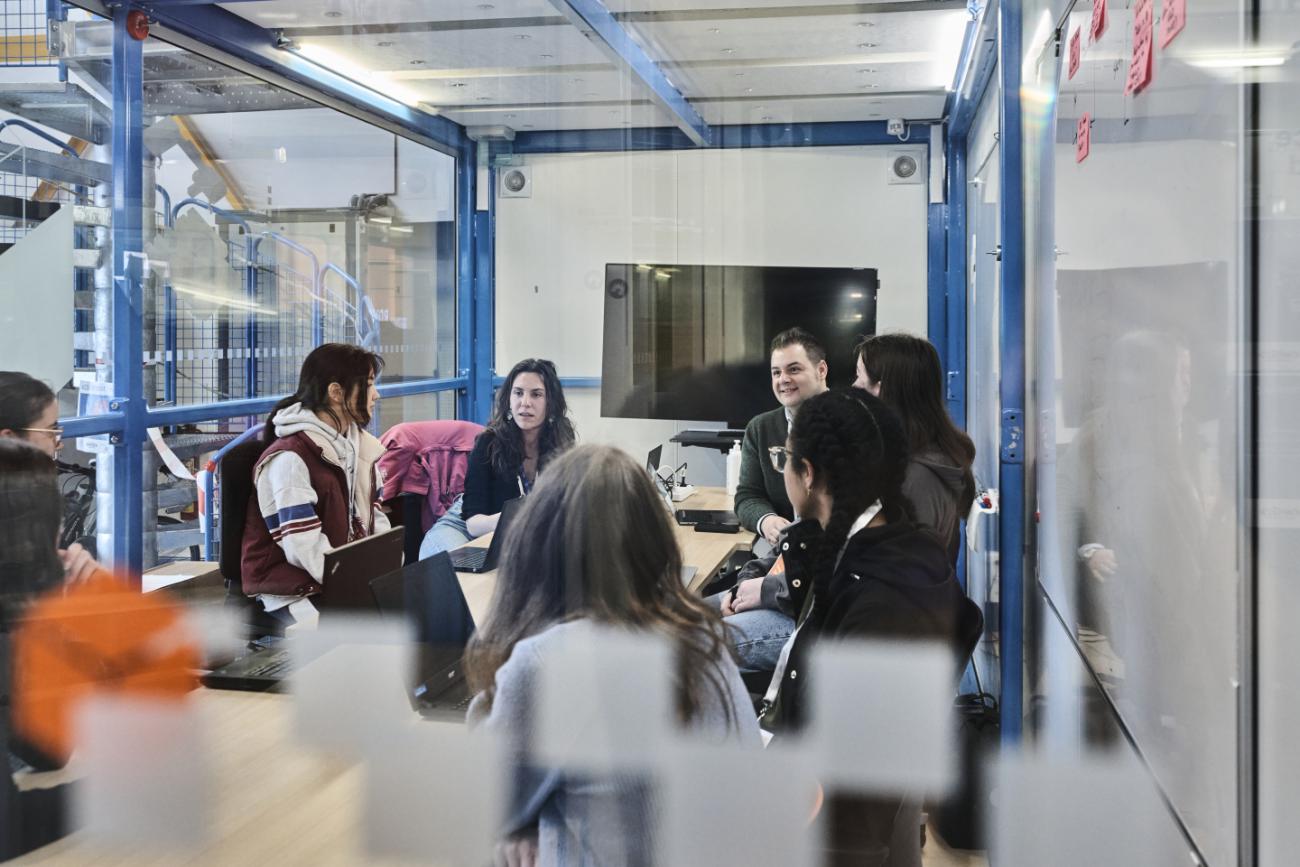On 21 and 22 April 2023, after two consecutive fully online events, CERN once again hosted an in-person Django Girls Geneva workshop at IdeaSquare. The event was organised jointly by CERN’s Women in Technology (WIT) community, its Visitors and Events Operations section and MicroClub in celebration of the International Girls in ICT Day (ICT = information and communication technologies).
At the evening launch event on Friday, 21 April and during the workshop on Saturday, 22 April, 34 highly motivated participants got to grips with computer programming for the first time. Guided in small groups by 17 CERN mentors, they learned how to create a blog and launch it online, all while having fun.
A positive and welcoming environment and inspiring interactions with digital technology specialists who were delighted to share their passion provided the ideal conditions to motivate some of the young women present in their choice of future career. In her welcome speech, Maria Girone, head of CERN openlab, encouraged the participants to confidently pursue studies and careers in the field of information technologies, where women are still under-represented.
Django Girls is an initiative originating from a collaboration between Django – a free, open access website development platform, written in the Python programming language – and a female user community committed to promoting information technologies and making them available to women and girls. This non-profit organisation provides free tools and resources to help volunteers organise programming workshops all over the world. Since 2014, more than 1000 events have been organised by some 2300 volunteers in 108 countries, which adds up to around 22 900 “Django Girls” who have received training. This year’s edition was the sixth to be hosted at CERN.
All the photos from the event can be found here.
-- Mélissa Samson
Article republished, with permission, from the "CERN and its neighbours" website.

